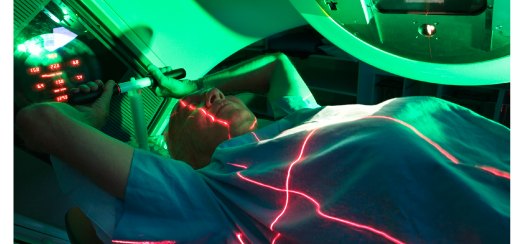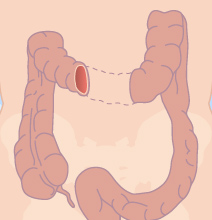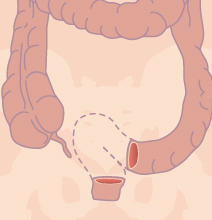External radiotherapy
The most conventional type of radiotherapy, in which the radiation, emitted from a machine outside the body, targets the area affected by cancer.

External radiotherapy is the most common type of radiotherapy used for rectal cancer. It is also an important part of the treatment used in patients with recurrent rectal cancer, who received radiotherapy when the disease first emerged.
In this option, treatment can last between 1 to 5 weeks (depending if it is administered pre- or post-surgically), with 5 sessions per week. This approach also requires an initial planning session.
Research into this type of technology continues, improving its effectiveness in the treatment of rectal cancer. IMRT – described below - is one such example; its development reduced the length of treatment and, consequently, the pelvic exposure to radiation, thereby reducing the patient’s risk of osteoporosis.
Intensity-modulated radiotherapy (IMRT)
IMRT is a type of 3D radiotherapy that targets tumors with much higher accuracy than conventional external radiotherapy. IMRT uses sophisticated software and 3-D CAT scan images, to emit, from different angles, multiple high-precision radiation beams to the tumor. This approach is much more efficient and less damaging to nearby healthy tissues than traditional radiotherapy, which uses a single, uniform radiation beam.





